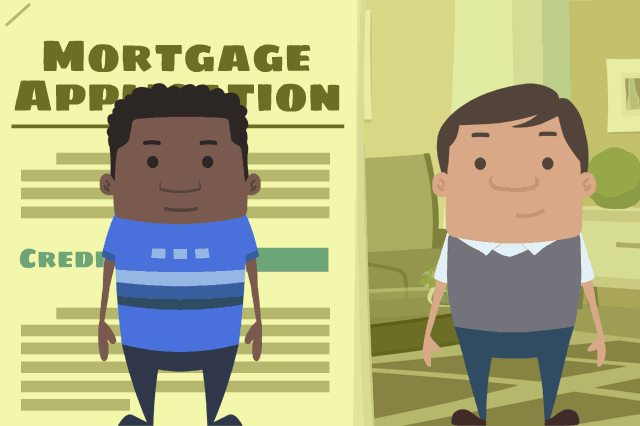Share a Home Purchased With an FHA Mortgage

Past studies by the National Association Of Home Builders include stats revealing that many borrowers expect their new home to cost anywhere from the low to mid-$200,000 range.
It is true that there are reported trends of Millennials moving back in (or never leaving) their parents’ homes, but there are also indications that home sharing is also on the minds of this age group.
Can an individual Millennial afford a home in the mid-$200,000s? That is a question on the minds of some looking at their housing options. But when it comes to those willing to share the home with others, the question of affordability changes.
FHA home loan rules permit the use of a single-family FHA mortgage or refinance loan for houses with as many as four units.
FHA loan rules require at least one person obligated on the mortgage to occupy the home as her main address. There can be non-occupying co-borrowers, but depending on circumstances the down payment requirement may be higher.
All the borrowers obligated on the mortgage must financially qualify for the mortgage. The credit strengths of one borrower aren’t likely to help the credit weaknesses of another co-borrower.
For those who want to purchase a home to share, there are several options that may be considered with an FHA mortgage. They include having several co-borrowers, with the caveat mentioned above that all applicants must financially qualify.
Each co-borrower will need to have a stable, reliable income, be able to verify two years of employment (though not necessarily with the same company), and have 12 months of on-time payments for all financial obligations for best results at loan approval time.
But if one of the borrower’s potential house-sharing partners has poor credit or other liabilities that could interfere with the mortgage, it may be best to have one borrower (or fewer borrowers) obligated on the mortgage loan and rent out the living unit to the other occupant(s) instead.
FHA loan rules permit an owner/occupier to rent out the unused units in the property secured with the FHA mortgage. If a borrower has no previous experience as a landlord or property manager, it is unlikely that that potential rental income from that property will be allowed as part of the borrower’s debt-to-income ratio.
However it is best not to assume when it comes time to apply for an FHA mortgage, so a conversation with your loan officer about such potential income is a very good idea.
The bottom line is that as long as at least one borrower occupies the property as the home address, there are few restrictions on whether or not you can rent out the unused portions of your home in a house-sharing situation.
Your potential roommates may be unable or unwilling to be obligated on the mortgage loan, but renting instead of co-borrowing is permitted under the rules in HUD 4000.1.
------------------------------
RELATED VIDEOS:
You're Almost There When You Get Your Loan Approval
Learn About the Mortgage Insurance Premium (MIP)
Pre-approval Starts the Mortgage Process

Do you know what's on your credit report?
Learn what your score means.







